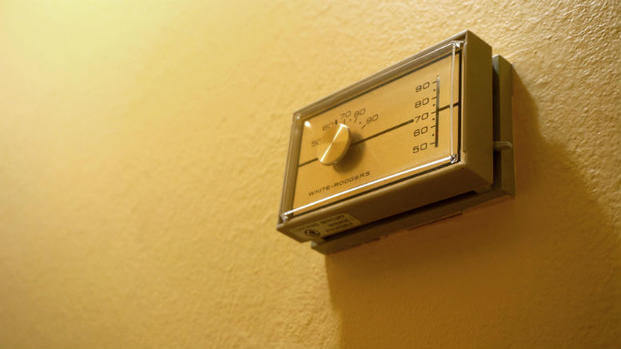In many areas, customers have the option of budget billing for utilities, typically gas and electric bills. What is budget billing, is it a good idea, and how does being military affect whether or not you should use budget billing?
What Is Budget Billing?
Budget billing is a plan where your utility provider estimates how much your bill will be over the next year, and you pay an equal payment each month to reach the total amount that your yearly bill is estimated to be. In this example, the customer begins their budget billing plan in January. The second column shows what the utility company estimates their bill will be each month, the third column shows the amount they pay using budget billing, and the fourth column shows how they build up a credit or have a deficit in their budget billing account. Since this example shows how budget billing is supposed to work, the whole thing comes out evenly at the end of the year.

Different providers evaluate their budget billing plans on a different schedule. Yearly and twice yearly are popular. If your plan is evaluated more often, you won't benefit from the natural highs and lows of the heating and cooling year. If your plan is evaluated less often, you may end up with very large credits or balances on your account.
Budget billing is also called an Equal Payment Plan (EPP) or Average Monthly Payment (AMP) plan, or some other name that your utility provider has made up.
Pros and Cons of Budget Billing
Budget billing can be a great tool for customers because it gives a predictable payment each month. This makes it easier to create a spending plan, and eliminates surprisingly large bills.
However, budget billing can be a problem if the company does not estimate your usage correctly, or if you move (or change energy providers) during certain times in the yearly billing cycle. If your usage is higher than the company estimates, then you will have a large bill at the end of the term. That is frustrating because it creates the problem that budget billing is supposed to prevent. The same situation can arise if you end your budget billing contract during a part of the year where you have a balance due.
Being military makes it more likely that you will be in one of these "bad" scenarios because military members are less likely to have lived in their house long enough to have a good record of their utility usage. Without a good record of usage, it is nearly impossible to have a budget billing amount that is correct to cover the year. Also, military members move frequently and at unpredictable times, which means more of a chance that you'll move during a period when you have a large outstanding balance.
Some companies may charge a fee for budget billing, or may require that you pay enough so that your account is never short. In either of these cases, budget billing may not be a great idea.
Another options is to have do-it-yourself budget billing, by keeping your utility money in a separate account. During the months when your utility usage is low, the account balance will grow and then be available for use during month when you are using a lot of electricity. The downside to this plan is that you won't have the benefit of the company carrying you over through periods when your account doesn't have enough money. I do a modified form of do-it-yourself budget billing by keeping all my housing money in a separate housing account, and it works well for me.
Budget billing is a great option for many customers, as long as you understand the potential pitfalls. It is particularly useful in very hot or very cold climates where utility bills vary dramatically over the course of the year. Look at your particular situation and see if budget billing would benefit you.









